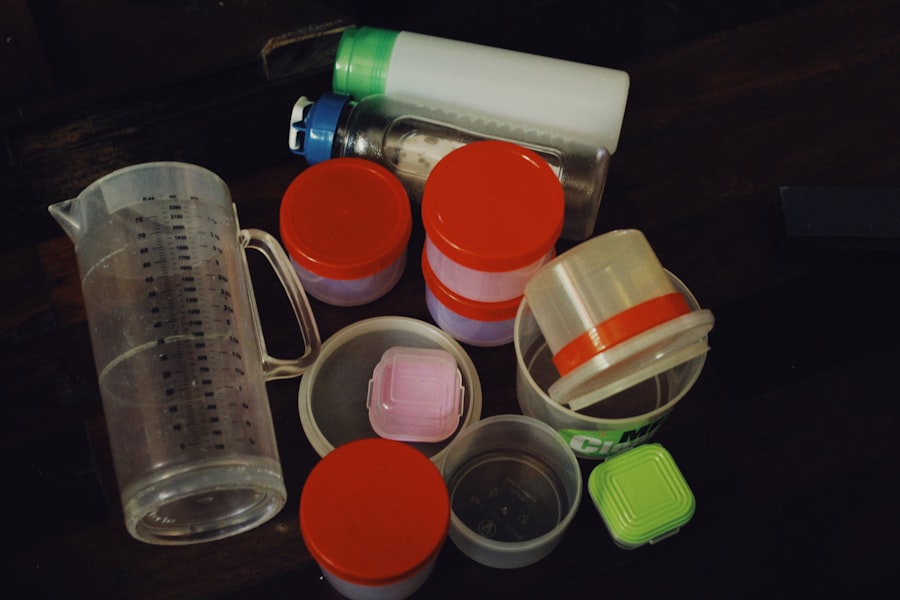Drug studies, often referred to as clinical trials, are systematic investigations designed to evaluate the safety and efficacy of new medications or treatment protocols. These studies are essential for advancing medical knowledge and improving patient care. They typically follow a structured process that includes several phases, each with specific objectives and methodologies.
The phases range from early-stage trials, which focus on safety and dosage, to later phases that assess the drug’s effectiveness in larger populations. Understanding the framework of these studies is crucial for anyone considering participation. Clinical trials are governed by strict regulatory guidelines to ensure participant safety and data integrity.
The process begins with preclinical research, where potential drugs are tested in laboratories and on animals before being administered to humans. Once a drug passes these initial tests, it enters Phase I trials, where a small group of healthy volunteers is given the drug to assess its safety and identify any side effects. If successful, the study progresses to Phase II, involving a larger group of participants to evaluate the drug’s effectiveness and further monitor its safety.
Phase III trials involve thousands of participants and are pivotal in determining whether a drug should be approved for public use. Each phase is meticulously designed to gather data that will inform regulatory decisions and clinical practice.
Key Takeaways
- Drug studies help evaluate the safety and effectiveness of new medications.
- Participating in drug studies can provide access to new treatments and contribute to medical research.
- Finding local drug studies involves searching online databases and consulting healthcare providers.
- Eligibility criteria vary and may include age, health status, and medical history.
- It’s important to ask about potential risks, study procedures, and participant rights before enrolling.
Benefits of Participating in Drug Studies
Participating in drug studies can offer numerous benefits to individuals, particularly those suffering from conditions that have limited treatment options. One of the most significant advantages is access to cutting-edge therapies that are not yet available to the general public. For patients with chronic or severe illnesses, being part of a clinical trial can provide an opportunity to receive innovative treatments that may improve their quality of life or even lead to recovery when conventional therapies have failed.
Moreover, participants in drug studies often receive comprehensive medical care throughout the trial period. This includes regular health assessments, monitoring by healthcare professionals, and access to additional resources that may not be available outside the study context. Many trials also cover the costs of medications, medical visits, and sometimes even travel expenses, alleviating some financial burdens associated with treatment.
Additionally, participants contribute to the advancement of medical science, helping researchers gather vital data that can lead to new therapies for future patients.
How to Find Drug Studies Near Me

Finding drug studies in your vicinity can be a straightforward process if you know where to look. One of the most effective ways is to consult clinical trial registries such as ClinicalTrials.gov, a comprehensive database maintained by the U.S. National Library of Medicine. This platform allows users to search for studies based on various criteria, including location, medical condition, and phase of the trial. By entering your zip code or city name, you can quickly identify ongoing or upcoming trials in your area. In addition to online registries, local hospitals and academic medical centers often conduct clinical trials and may have dedicated research departments that can provide information about current studies. Engaging with healthcare providers is another valuable approach; they can offer insights into available trials that may be suitable for your specific health condition. Furthermore, patient advocacy groups related to specific diseases frequently maintain lists of clinical trials and can assist individuals in navigating their options.
Eligibility Criteria for Drug Studies
| Eligibility Criterion | Description | Common Metrics/Parameters | Purpose |
|---|---|---|---|
| Age Range | Specifies the minimum and maximum age of participants | Minimum age (years), Maximum age (years) | Ensures safety and relevance of drug effects to target population |
| Gender | Defines whether the study includes males, females, or both | Male, Female, Other | Accounts for gender-specific drug responses or risks |
| Health Status | Specifies health conditions required or excluded | Presence/absence of specific diseases, baseline lab values | Ensures participant safety and study validity |
| Previous Treatment | History of prior medications or therapies | Use of specific drugs, washout period duration | Prevents interference with study drug effects |
| Pregnancy Status | Inclusion or exclusion of pregnant or breastfeeding women | Pregnancy test results, breastfeeding status | Protects fetus and infant from potential drug risks |
| Informed Consent | Participant’s voluntary agreement to participate | Signed consent form | Ethical requirement for participation |
| Body Mass Index (BMI) | Range of acceptable BMI values | Minimum and maximum BMI (kg/m²) | Ensures appropriate dosing and safety |
| Laboratory Values | Baseline blood, liver, kidney function tests | Hemoglobin, creatinine, liver enzymes levels | Assesses organ function and safety |
| Comorbid Conditions | Presence or absence of other medical conditions | Diabetes, hypertension, cardiovascular disease | Controls confounding factors and safety risks |
| Medication Restrictions | Allowed or prohibited concomitant medications | List of excluded drugs, washout periods | Prevents drug interactions |
Eligibility criteria for drug studies are established to ensure that participants are suitable for the specific research objectives and that their inclusion will not compromise their safety or the integrity of the study results. These criteria can vary significantly depending on the nature of the trial, the drug being tested, and the condition being treated. Common factors considered include age, gender, medical history, current health status, and previous treatments received.
For instance, a trial investigating a new cancer treatment may require participants to have a confirmed diagnosis of a specific type of cancer at a certain stage. Conversely, other studies might exclude individuals with certain comorbidities or those who are pregnant or breastfeeding. It is essential for potential participants to carefully review these criteria before enrolling in a study, as meeting them is crucial for both personal safety and the validity of the research outcomes.
Questions to Ask Before Participating in a Drug Study
Before committing to participate in a drug study, it is vital to ask pertinent questions that will help clarify what involvement entails and what one can expect throughout the process. One fundamental question is about the purpose of the study: What is being tested, and how does it differ from existing treatments? Understanding the rationale behind the research can provide insight into its potential benefits and risks.
Another critical area of inquiry involves the study’s design and procedures. Participants should ask about what will be required of them during the trial, including any tests or assessments they will undergo and how often they will need to visit the research site. Additionally, it is important to inquire about potential side effects or risks associated with the treatment being studied.
Understanding these aspects can help individuals make informed decisions about their participation and prepare for any challenges they may face during the trial.
Risks and Considerations of Participating in Drug Studies

While participating in drug studies can offer significant benefits, it is essential to recognize that there are inherent risks involved as well. One primary concern is the possibility of experiencing adverse side effects from the investigational drug. Since these treatments are often in early stages of development, their safety profiles may not be fully established, leading to unforeseen reactions that could impact participants’ health.
Moreover, there may be psychological or emotional considerations associated with participating in a clinical trial. The uncertainty surrounding experimental treatments can lead to anxiety or stress for some individuals. Additionally, participants may face challenges related to time commitments, as many studies require frequent visits for monitoring and assessments.
It is crucial for potential participants to weigh these risks against the potential benefits and consider their personal circumstances before enrolling in a study.
What to Expect During a Drug Study
Once enrolled in a drug study, participants can expect a structured experience that varies depending on the trial’s design and objectives. Initially, participants will undergo a screening process that includes medical evaluations and assessments to confirm eligibility. This phase is critical for ensuring that individuals meet all necessary criteria before beginning treatment.
During the trial itself, participants will typically receive either the investigational drug or a placebo (an inactive substance) as part of a randomized control design. Regular follow-up appointments will be scheduled for monitoring health status and collecting data on any side effects or changes in condition. Participants may also be asked to complete questionnaires or keep diaries detailing their experiences throughout the study period.
This data collection is vital for researchers as it helps them assess the drug’s effectiveness and safety comprehensively.
Resources for Finding Drug Studies Near Me
In addition to ClinicalTrials.gov, several other resources can assist individuals in locating drug studies nearby. The World Health Organization (WHO) maintains an international clinical trials registry platform that provides access to studies conducted globally. This resource can be particularly useful for those interested in trials outside their home country or looking for specific types of research.
Local universities and research institutions often have dedicated websites or contact information for their clinical research departments. These institutions frequently conduct trials across various medical fields and may offer opportunities not listed on larger registries. Furthermore, social media platforms and online forums related to specific health conditions can serve as valuable resources for connecting with others who have participated in trials or who are seeking information about ongoing studies.
Patient advocacy organizations also play a crucial role in disseminating information about clinical trials relevant to specific diseases or conditions. Many of these organizations maintain databases or provide guidance on how to navigate clinical trial participation effectively. By leveraging these resources, individuals can enhance their understanding of available options and make informed decisions regarding participation in drug studies.




